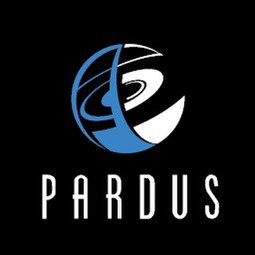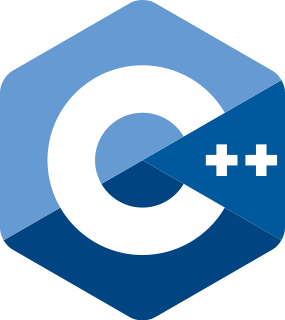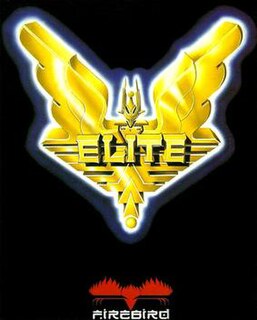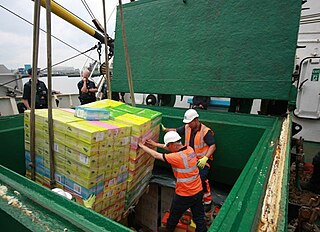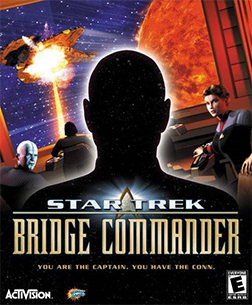
Star Trek: Bridge Commander is a space combat simulation video game, published by Activision and Totally Games in 2002, based in the Star Trek universe.

Escape Velocity Nova is a video game by Ambrosia Software, in collaboration with ATMOS. It is the third game in the Escape Velocity series of space trading & combat games.

Star Wars Galaxies was a Star Wars themed massively multiplayer online role-playing game (MMORPG) for Microsoft Windows, developed by Sony Online Entertainment and published by LucasArts.

Eve Online is a space-based, persistent world massively multiplayer online role-playing game (MMORPG) developed and published by CCP Games. Players of Eve Online can participate in a number of in-game professions and activities, including mining, piracy, manufacturing, trading, exploration, and combat. The game contains a total of 7,800 star systems that can be visited by players.

Freelancer is a space trading and combat simulation video game developed by Digital Anvil and published by Microsoft Game Studios. It is a chronological sequel to Digital Anvil's Starlancer, a combat flight simulator released in 2000. The game was initially announced by Chris Roberts in 1999, and following many production schedule mishaps and a buyout of Digital Anvil by Microsoft, it was eventually released in March 2003.
Guild Wars is a online role-playing game series developed by ArenaNet and published by NCSOFT. The games were critically well received and won many editor's choice awards, as well as awards such as Best Value, Best Massively Multiplayer Online Role-Playing Game (MMORPG), and Best Game. Guild Wars was noted for being the "first major MMO to adopt a business model not based on monthly subscription fees", its instanced approach to gameplay, and the quality of the graphics and play for computers with low specifications. In April 2009, NCSoft announced that 6 million units of games in the Guild Wars series had been sold. The sequel, Guild Wars 2, was announced in March 2007 and released on August 28 2012. It features updated graphics and gameplay mechanics, and continues the original Guild Wars tradition of no subscription fees. The Guild Wars series had sold 11.5 million copies by August 2015.
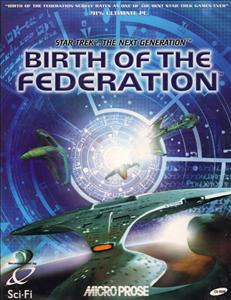
Star Trek: Birth of the Federation is a 4X turn-based strategy video game developed by MicroProse and published by Hasbro Interactive. The game was initially released on May 25, 1999 for Windows personal computers.
Face of Mankind was a first and third-person massively multiplayer online action role playing game (MMORPG) set in a futuristic persistent world. The game is played from a variety of points of view. It was designed to emphasize roleplay and community, using a faction system and player-driven politics. It was developed by German studio Duplex Systems.
Federation Commander is a tactical starship combat board wargame system, produced and developed by Amarillo Design Bureau Inc. (ADB) It is designed to represent combat between vessels of various factions in the Star Fleet Universe, such as the United Federation of Planets and the Klingon Empire. The Star Fleet Universe is based upon a licence to use properties in the fictional Star Trek universe as it stood in 1979. Thus it includes the original series and the animated series as well as fan contributions but diverges from then and does not include anything from the movies or any subsequent television series. Much of the combat in Federation Commander is said to take place around the time of the fictional "General War", a large scale conflict in the Milky Way that involved prolonged conflict between a multitude of star-faring cultures.

StarQuest Online was a massively multiplayer online role playing game taking place in a large universe. It was created by Castle Thorn Software. In 2009 NeXeon Technologies partnered with Castle Thorn to support development of the game, but in mid-2014 NeXeon announced they would shut down the game server due to severe population decline.

Star Wars Miniatures is a 34mm scale collectible miniatures tabletop game based on the Star Wars fictional universe that was produced by Wizards of the Coast. The game was originally released in September 2004 and continued production until May 2010. Star Wars Miniatures players build point-based squads from one of ten different in-universe factions then conduct battles between those squads. The game mechanics are a simplified version of the d20 roleplaying game system. Multiple maps, scenarios, and set themes from different settings and time periods from within the Star Wars universe are available.
Rebel Space was the second play-by-email game offered as part of a major commercial online service. It ran on Prodigy from 1992 to 1995. The game was developed by Stormfront Studios, designed by Don Daglow and programmed by Mark Buchignani.
Dune is a strategy board game set in Frank Herbert's Dune universe, published by Avalon Hill in 1979. The game was designed by Bill Eberle, Jack Kittredge and Peter Olotka.
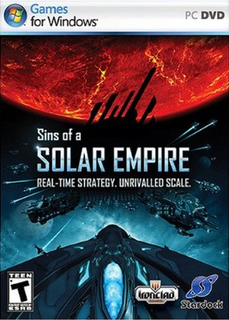
Sins of a Solar Empire is a 2008 science fiction real-time strategy Video game developed by Ironclad Games and published by Stardock Entertainment for Microsoft Windows operating systems. It is a real-time strategy (RTS) game that incorporates some elements from 4X games; its makers describe it as "RT4X". Players are given control of a spacefaring empire in the distant future, and are tasked with conquering star systems using military, economic and diplomatic means.

Wing Commander: Privateer is an adventure space flight simulation computer game released by Origin Systems in 1993. Privateer and its storyline is part of the Wing Commander series. Privateer had an add-on titled Righteous Fire (1994) that continues the story and adds other purchasable equipment to the game.
Universal Century Gundam Online was a massively multiplayer online role-playing game based in the Universal Century Gundam universe.
The game of World of Warcraft, or WoW, is set in a fictional world known as Azeroth and in the expansion The Burning Crusade extended the game to another world called Outland. The expansion Wrath of the Lich King added Northrend, the frigid northern continent of Azeroth. In the expansion Cataclysm, the classic continents of Azeroth were drastically changed as some zones were destroyed and new ones were unveiled. The expansion Mists of Pandaria added the southern continent, previously hidden behind a perennial mist cover, Pandaria. The expansion, Warlords of Draenor added Draenor, which is an Outland was before its partial destruction. The expansion Legion adds the Broken Isles, an island chain near the Maelstrom in the middle of the Great Sea, and the damaged planet Argus, the headquarters of the Burning Legion. The latest expansion Battle for Azeroth adds 2 new continents to the center of the map of Azeroth and introduces 8 new races called Allied Races.

Eve Online is a player-driven persistent-world massively multiplayer online role-playing game set in a science fiction space setting. Since its release on May 6, 2003 the developer CCP Games has added a total of twenty-one expansions to the game. CCP provides expansions free of charge to its subscribers. This article highlights the expansions and changes introduced to the game.

Imperium Galactic War is a massively multiplayer online real-time strategy game by Vavel Games, originally developed and published by Kabam in 2013. The game runs on a freemium model, and is supported through the use of microtransactions.

Vavel Games is an international game development company with offices based in Washington, D.C., U.S., Rugby, UK and Warsaw, Poland. The company was officially founded on 2 January 2014 by Mikołaj Marcisz, Brett Norton and John Balestrieri. Vavel's CEO, John Balestrieri, has over twenty years of technology management, gaming, advertising and entertainment experience. He is best known for his work on the Kasparov versus Deep Blue, as well as being the former worldwide CTO of Ogilvy & Mather, one of the largest and most prestigious advertising agencies in the world. As well as leading technology efforts at Kabam and VP Engineering at Scopely.
